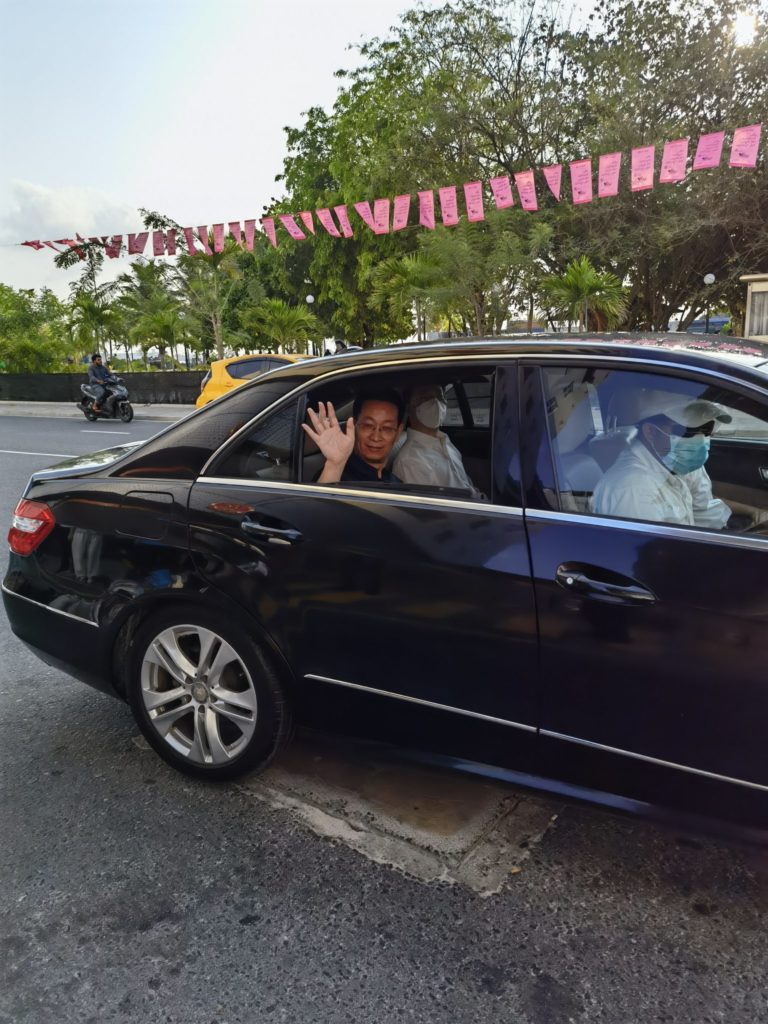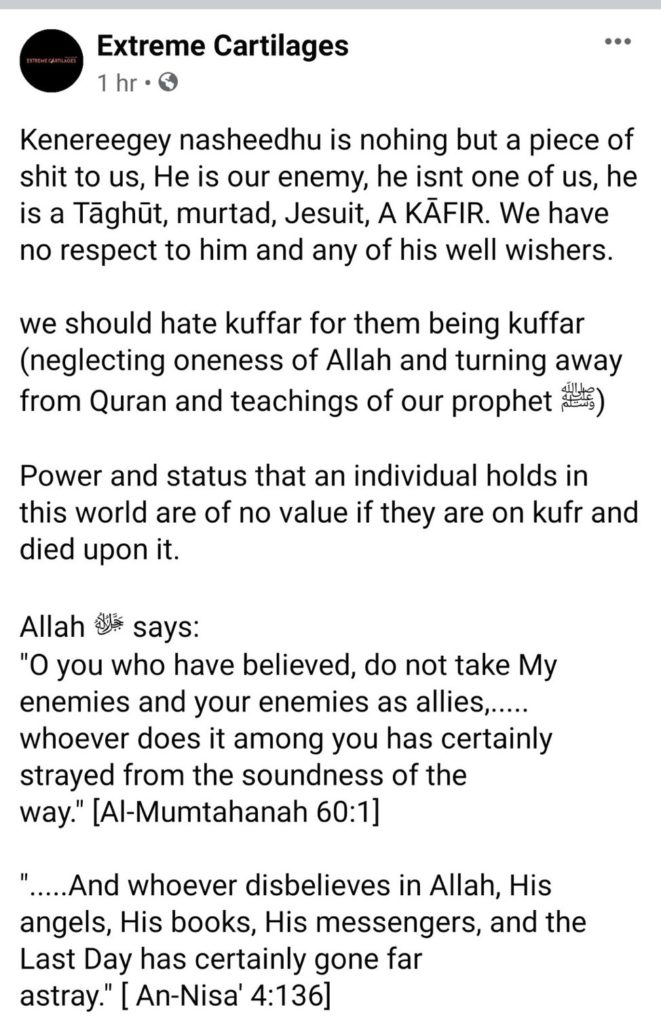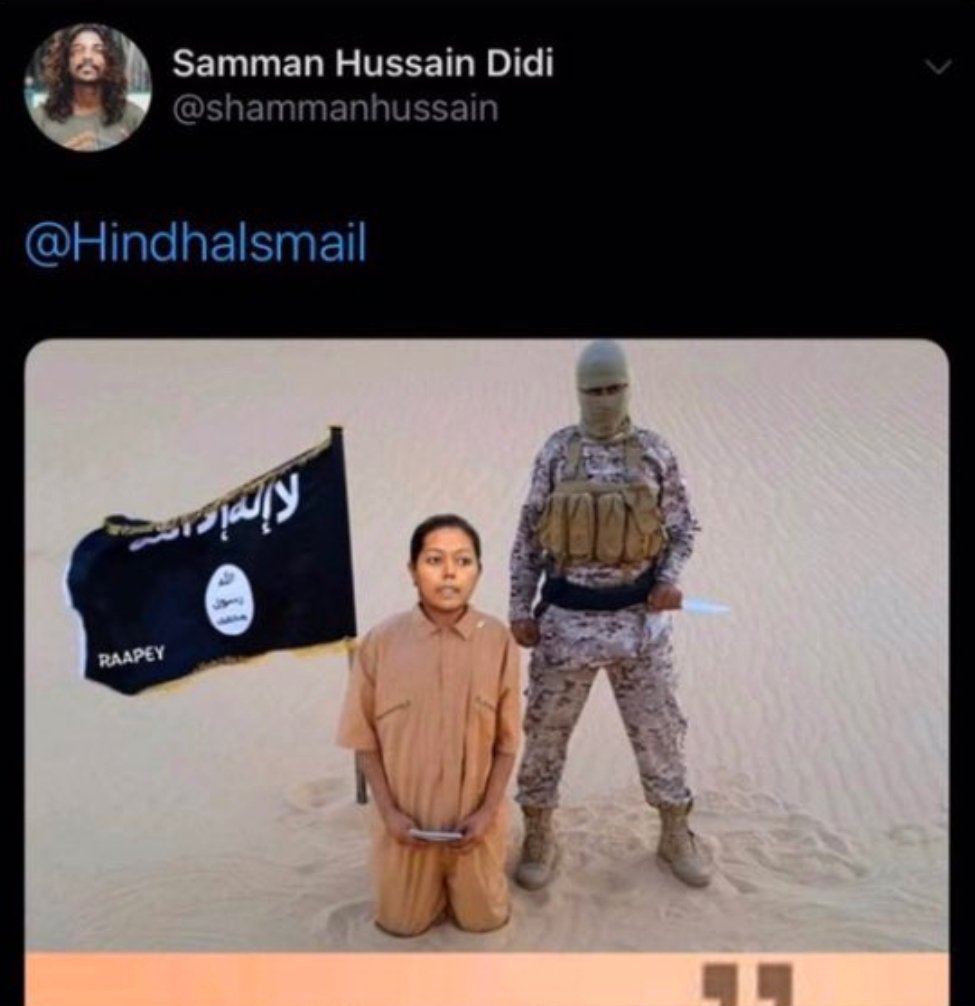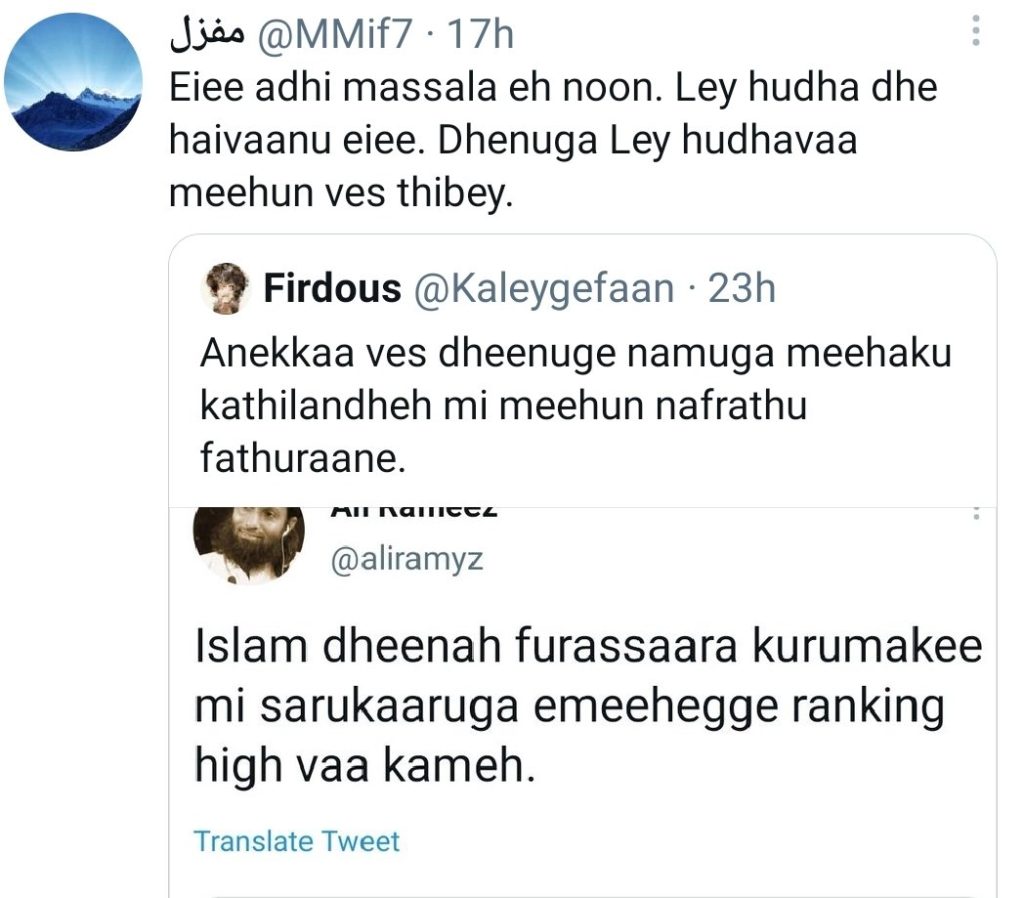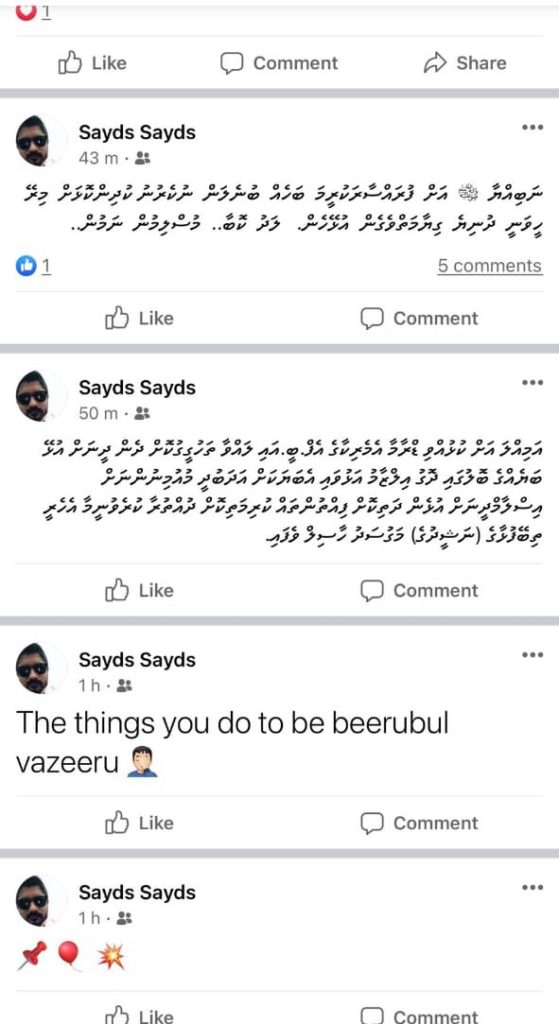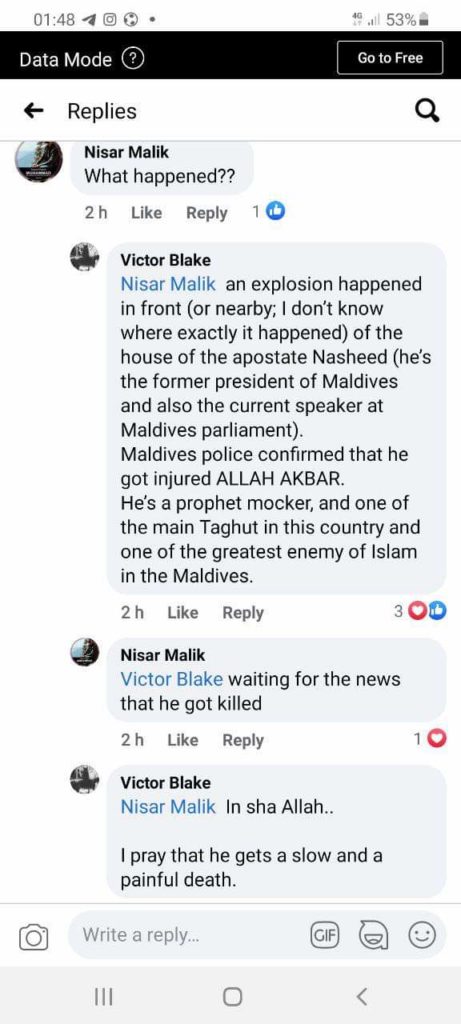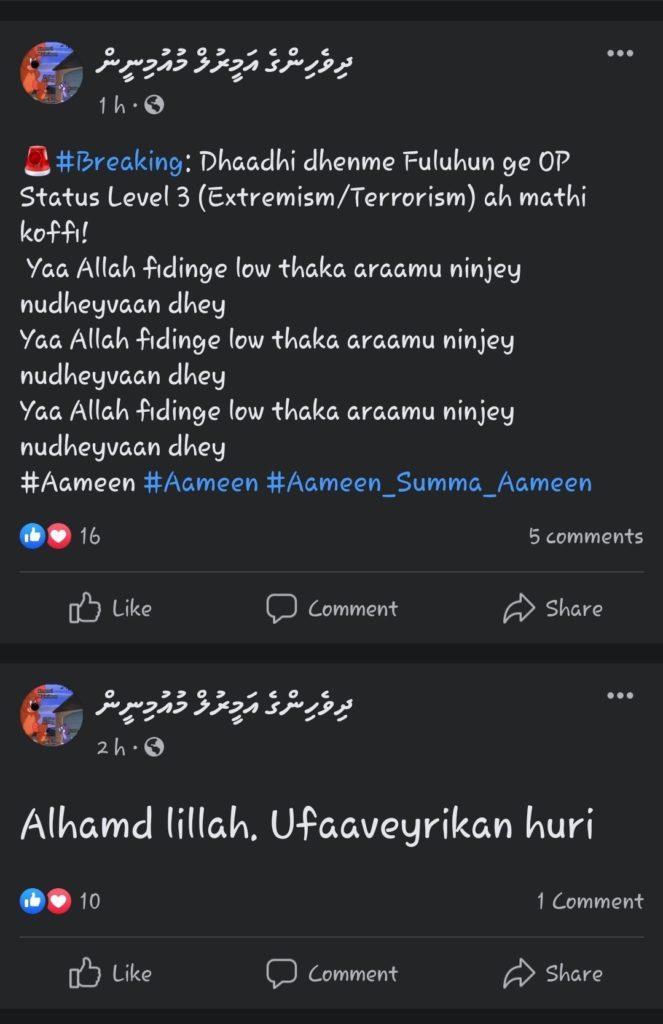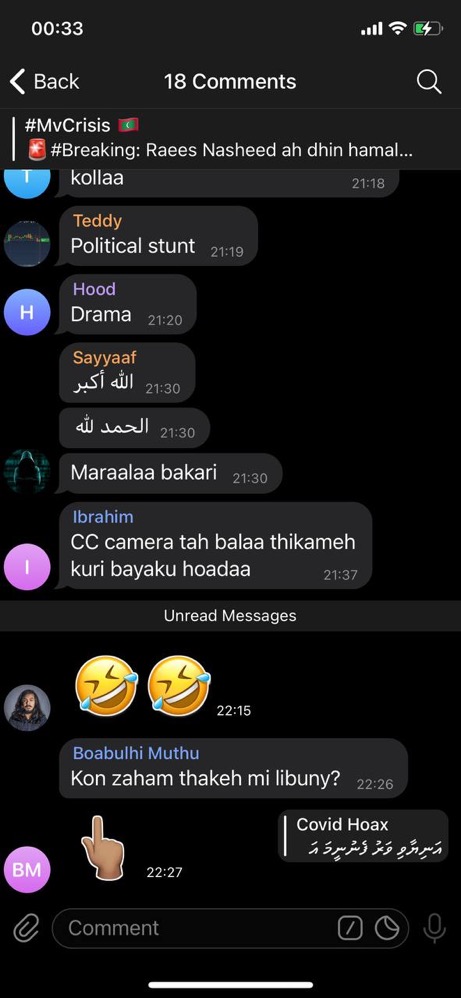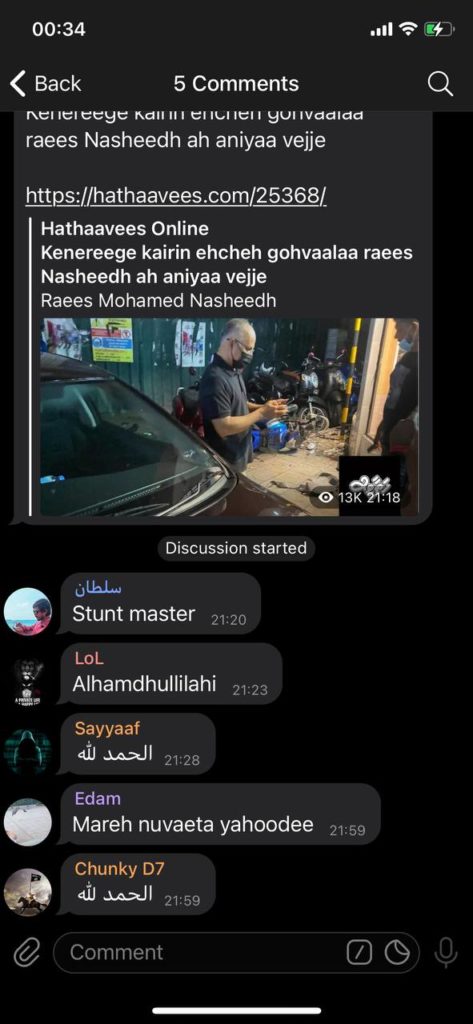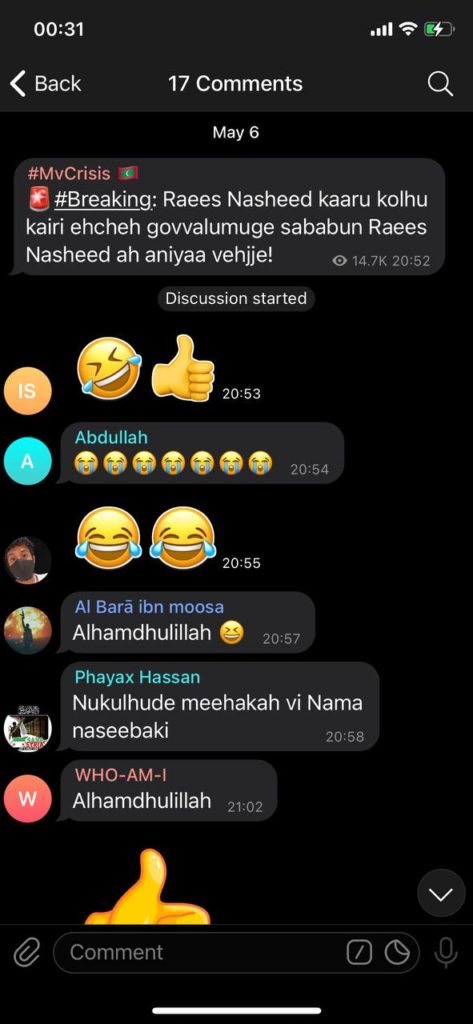The abyss stares back

Azra Naseem
The Taliban conquered all of Afghanistan on Sunday. Twenty years of US presence to democratise Afghanistan failed to achieve anything. The millions of lives lost as a consequence of the war have amounted to nothing. The 20 billion spent on training the Afghan military and police ultimately only enriched the defence contractors. Most are baffled by the failure of the US to see this coming. But then again, maybe the US did see it coming, they just didn’t care.
US ‘failure to see’ they were achieving nothing in Afghanistan is not a surprise for an observer of the situation in Maldives where conservative Islam has annihilated traditional Islamic practices, replacing them all with various strands of Wahhabi and Salafi ideologies. The revolution in Maldivian religious beliefs has taken place in full view of the world, including the United States. It has done nothing—has it failed to see what was happening in front of their eyes? Or did they just not care?
When George W Bush invaded Afghanistan to destroy “Islamic terrorism” and “smoke them [“Islamic terrorists”] out” of their holes in Afghanistan, the ultra-conservative Islam of the Taliban was alien to Maldivians. In the twenty years since the world has become a place where the toxic fumes of the Islamist ideology that Bush’s “armies of the willing” stoked in their mission to smoke out the terrorists is now stifling the entire world. From Muslim communities in western Europe to central Asia and small villages in Indonesia to cities and tribes in remote parts of Africa, conservative Islamic ideologies—and their more militant interpretations—have wreaked havoc on societies. Everyone working in the name of making the world a better place.
The Maldives is an important example of how damaging the invasion of Afghanistan has been to countries near and far. In the late 1990s, when a handful of Wahabbis and Salafi clerics began to appear and proselytise in Male’, the capital of Maldives, society saw them as abnormal. They were seen as an extremist sect of Islam, that interpreted Islamic teachings differently to the understandings Maldivians learned and maintained over eight hundred years of being an Islamic state. But the Maldivian mindset changed over the next twenty years. The change became more dramatic as the increasing number of Maldivians who began travelling to Pakistan and Afghaistan for religious education returned home, and when they began to receive more funding from conservative and militant Islamic sources that were pitching themselves against the US in the War of “Us” and “Them”. The narrative of a War Against Muslims led by America—which, as any good narrative contains within it kernels of truth—made it possible for once abnormal practices to become normalised within a very short space of time. It allowed Salafi activists to operate uninterrupted in the Maldives, it provided the motive for many young disaffected listless people to be recruited to the cause, to become “Soldiers of Allah”. The newly “democratic” forces in the name of freedom of speech failed to even monitor the spread of such conservative religious ideology in the Maldives. Politics and religion, instead distancing themselves from each other as can be expected in a democracy instead fell into each other’s arms as corrupt politicians and businessmen made pacts with conservative Islamists for their own gain, letting the people’s minds be saturated with such teachings from morning till night, from every media outlet, on every public platform in the country.
What was once abnormal in the Maldives twenty years ago is now normal, what was once extreme is now customary. That is why several MPs and every democratically elected president bar one continues to maintain there is no Islamist extremism in the Maldives. Extreme is normal. This revolution in Maldives is almost forgotten by the international community now although it is still in the making. For the last 20 years the United States has dealt with the Maldives as if it has always been a society that adhered to such religious conservatism. Context has never been a strength of US foreign policy. Until the War on Terror, US interest in the Maldives was negligible. Funding was on average just around the US$100,000 mark annually. Once the “endless” war began, for the US the only value Maldives had was whatever minuscule strategic value it could offer as the tiniest of cogs in its war against “Islamic terrorism”.
The US focus on how the Maldives could contribute to winning the war against terrorism meant the US focus on Maldives was entirely as an “Islamic country”, ruling out any other way of seeing it. This narrow focus failed to see the Maldives also as a country trying to rid itself of authoritarianism and become a more tolerant and liberal democracy. This struggle, which once brought together the Maldivian people to rise up as one against inhumanity, was lost to the greater movement to make Maldives a part of a conservative network of Islamic emirates in Asia. Liberal voices who wanted the human rights enshrined in the UN Declaration of Human Rights to be part of the Maldivian transition in the early 2000s were side lined in the rush to appease the clerics. As the Bush and the rest of the international community put conservative Islam on the top of their security agendas, the importance of such ideologies and their leaders grew in the politics of small countries like the Maldives. (And, as we see now, in large countries like Afghanistan, directly under the nose of their army and strategists.) The fight for a tolerant liberal democracy that could gleam as a beacon on the ocean for modern Islam across the world wasn’t even allowed to begin before it was killed by the conservative ideologies that want to take Maldives in the opposite direction. Conservative Islam was allowed so much space in the new Maldives, it stifled any other thought, any other idea and muzzled any other expression. Like the frog that will quickly jump out of the water if it is hot at first touch but sits in slowly boiling water unconcerned while it kills him, Maldivians slowly embraced as normal what they once abhorred as abnormal. Today it is normal not to be outraged if a person is killed for not being Muslim enough. Today it is normal to fight for the right to hate in the name of religion. Today it is normal to promote the “circumcision” of young girls. Today it is normal to call for the beheading of anyone who is not a cis-gendered heterosexual. Today it is normal to believe it is perfectly alright—if not a religious duty—to kill any Maldivian who is not a Muslim or is not Muslim enough. Today it is normal to try and blow up a former president because his leadership was not religious enough. Today it is normal to hunt down and smoke out any Maldivian for having thoughts the clerics find offensive or kufr. Today it is normal to think that first thing you should do when you buy a parrot is to teach it the Qur’an. Today it is normal to kill in the name of God and to punish by death those who do not believe what is right, as decided by the clerics.
It seems as if the US has not seen any of this, or maybe it does, but simply does not care. Once it was the US’ focus on the War on Terror, funnily enough, that kept the US from seeing the Maldives as anything but an ultra-conservative Muslim society like Saudi Arabia or Afghanistan from the very beginning. It failed to support or care about strengthening democracy in the Maldives, instead focusing on strengthening the military and law enforcement capability in identifying terrorists. The US is/was aware that the Maldivian civil society fighting for democratic rights is under threat from both the government and the religious community. Yet, it has chosen to work with the conservative religious authorities to sideline the few remaining liberal voices in Maldivian civil society, turning its back on the opportunity to stand up for human rights. How to call for a more tolerant society while in cahoots with those whose very reason for existence is to stifle–or forever silence–such voices? The US doesn’t pause to ask such questions. It continues to proudly train Maldivian police and military, failing to acknowledge the fact that neither have been effective in either preventing terrorism or stopping recruitment to Jihad. It fails to see that, just as in Afghanistan, the efforts to ‘infiltrate, ‘turn’, ‘invite to true Islam’, whatever you want to call it, have been successfully continuing at all levels of Maldivian government and state for the last ten years and more.
More recently there has been a new shift in policy. The Maldives is now of interest to the US as not just another Islamic country in its fight against terrorism, but as a strategic partner in its upcoming confrontation with China. This is obvious in the sudden rush to the Maldives by then-Secretary of State George Pompeo just before the end of Trump’s presidency, and the surprise declaration that Male’ will have an American Embassy. It was about the new classified defence agreement between the Maldives and the US, no doubt allowing a strong India-US defence presence in the Maldives to counter China’s influence. The “Islamic Terrorist” that George W Bush described as an Evildoer he was hunting in Afghanistan is now passé in the eyes of the US. Its new enemy—defined by its interests (as its friends are)—is now the Communist Party of China.
Before this shift in its security thinking, the US didn’t care about the human rights of Maldivians because its foreign policy assumed the Maldives was the homogenous “100 percent Muslim country” its conservative politicians parroted. Now it doesn’t care about the human rights of the Maldivians because Islamic Terrorism is no longer the biggest enemy of the United States. Dealing with conservative Islamic ideologies is now a “Muslim problem”. Just as it did not see the truth of what was happening in Afghanistan – the infiltration of the Taliban into all levels of government and state – it does not see (and neither is it interested) that the same wheels are in motion in the Maldives.
Ultra-conservative Muslims, especially of the Salafi and Wahhabi persuasions, are part and parcel of the current government and state. Such ideology is rife at the intellectual level where liberal Islamic thought has been completely obliterated. It is rife in universities where lecturers and heads of school are free to describe FGM as an Islamic duty, or that marital rape is non-existent. It is rife in the death of a culture which once tolerated different forms of gender and sexual orientations, which once allowed freedom of thought, if not expression. It is rife in schools where children are taught to hate the non-Muslim Other. It is rife in government which is occupied by Salafi-backed politicians. It is rife in parliament where members cannot pass a bill against spreading hate in the name of religion. It is rife in families where women are increasingly kept home, increasingly covered up, and increasingly accepting of themselves as “Slaves of Allah” and no more. It is rife in the future as increasingly girls are being taught to be humble and modest before the man, and before the government. It is rife in the increasing acceptance of child brides, of stigmatisation and hatred of any woman who does not conform. It is rife in the absence of people power that can revolt against injustices because to do so is increasingly accepted as rising up against the Divine.
It is rife in the possibility that the Islamic Emirate of the Maldives is just as likely to be real as the Islamic Emirate of Afghanistan is today. Both projects have been in the making for years, right in front of our eyes. But the Islamic Emirate of the Maldives will still “surprise” most, including the US.



